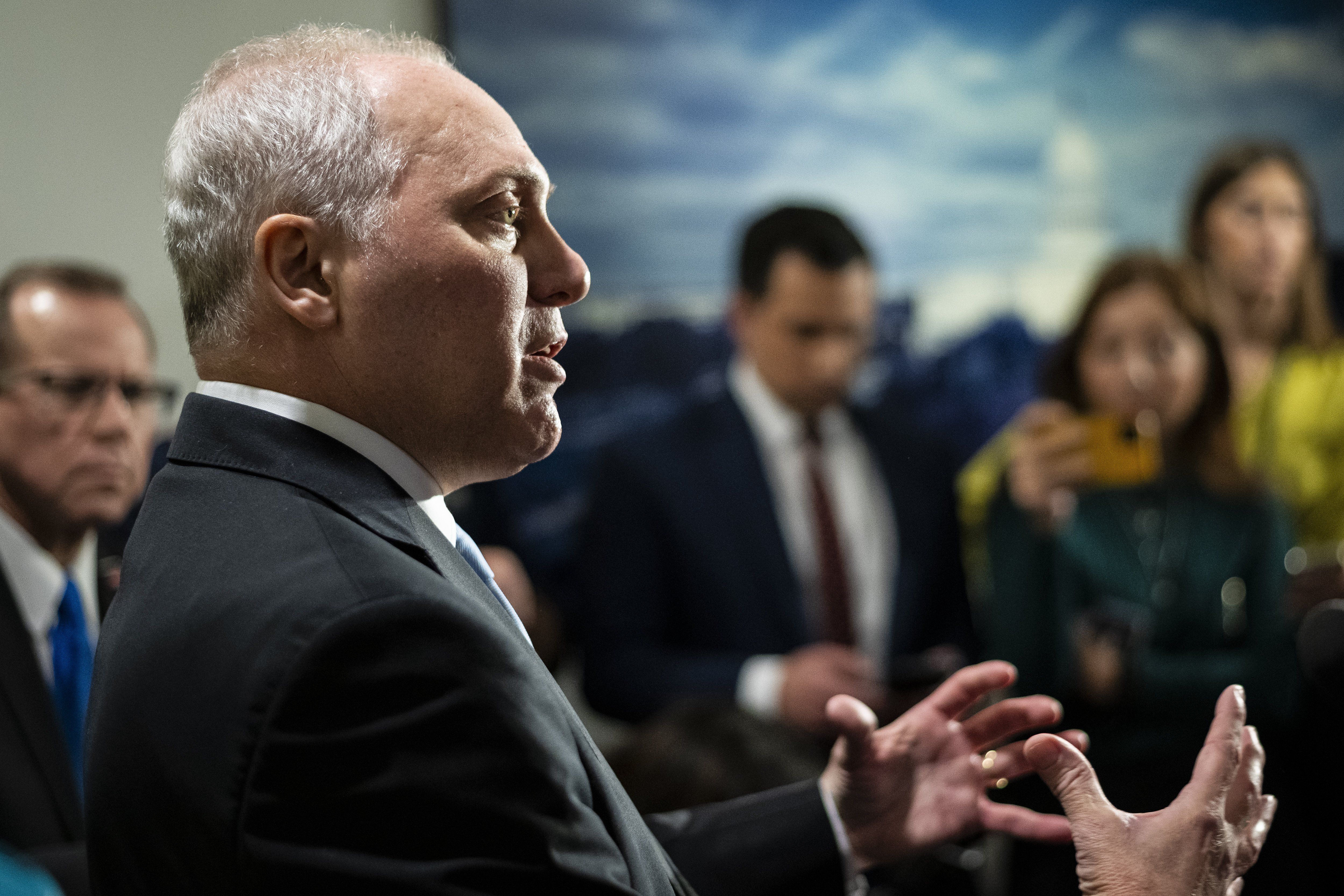Though Steve Scalise of Louisiana managed to win enough secret-ballot votes from fellow House Republicans on Wednesday to become the party’s nominee for House speaker, it became clear within hours that he didn’t have enough support to win the job in a vote of the full House. No Democrat would vote for him, and the GOP majority is so thin that no Republican can win if just four fellow Republicans refuse to back him.
Following a Thursday afternoon meeting of Republicans hoping to break the deadlock and unite behind Scalise, Ronny Jackson of Texas, referencing the traditional sign that cardinals have agreed on a new pope, told reporters that “If you see smoke, it’s not a speaker, someone just set the place on fire.”
Then, on Thursday night, Scalise accepted the inevitable and withdrew from the race. There is no alternative candidate who can quickly unify Republican members.
The need to respond to the crisis in Israel and to bargain with Democrats in advance of another threatened government shutdown next month has reignited talk that Patrick McHenry of North Carolina, now acting as temporary speaker, will be given the job for some temporary period (perhaps one to three months) while Republicans try yet again to work out their differences.
Yet, Scalise’s inability to secure GOP unity at this critical moment signals that whoever eventually wins the job on a permanent basis will inherit an authority that remains subject to the whims of those who would rather defy their own party leaders than advance legislation.
Meanwhile, policymakers in other governments, watching this continuing spectacle, will decide for themselves whether the United States remains a reliable ally.
